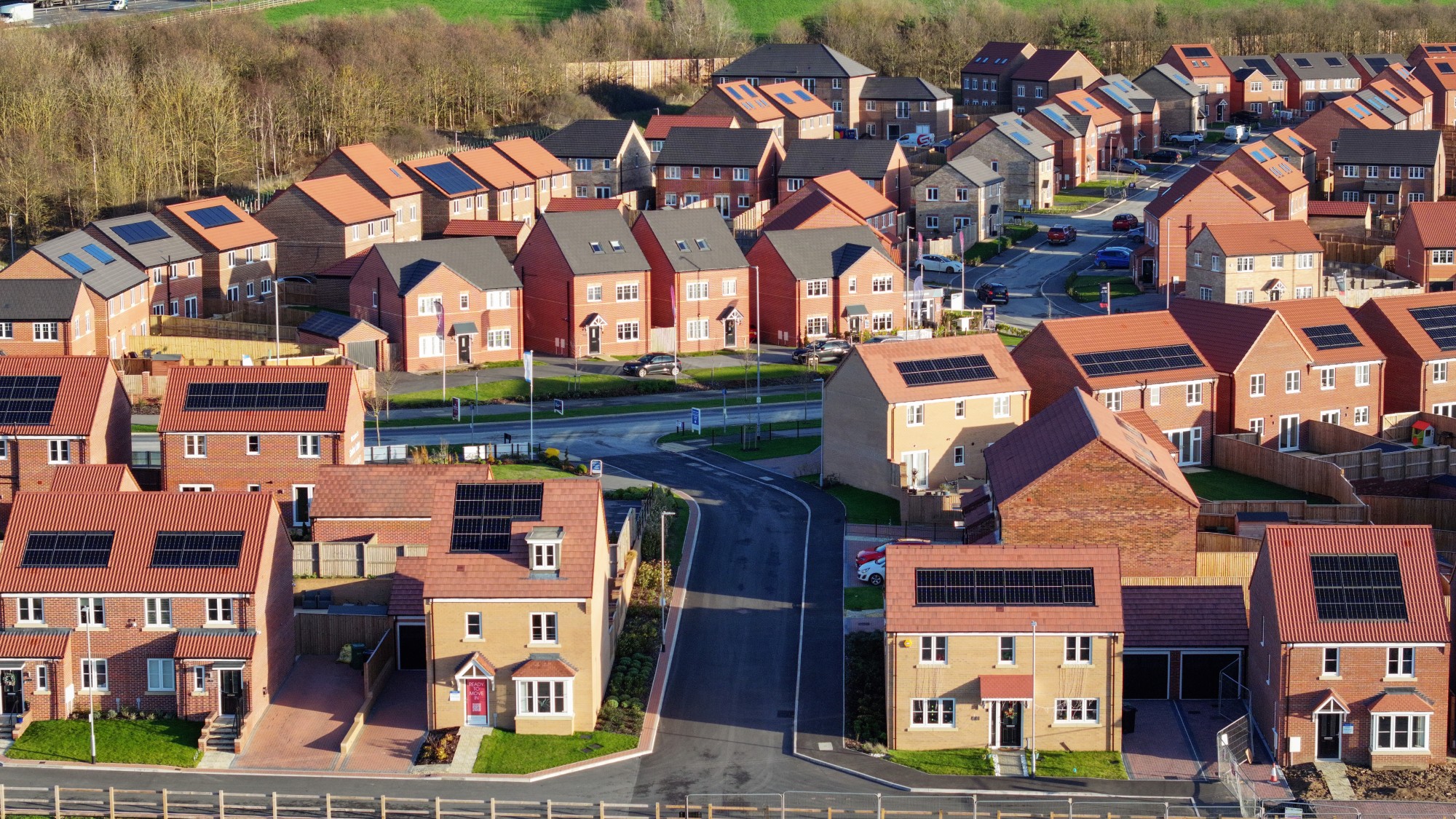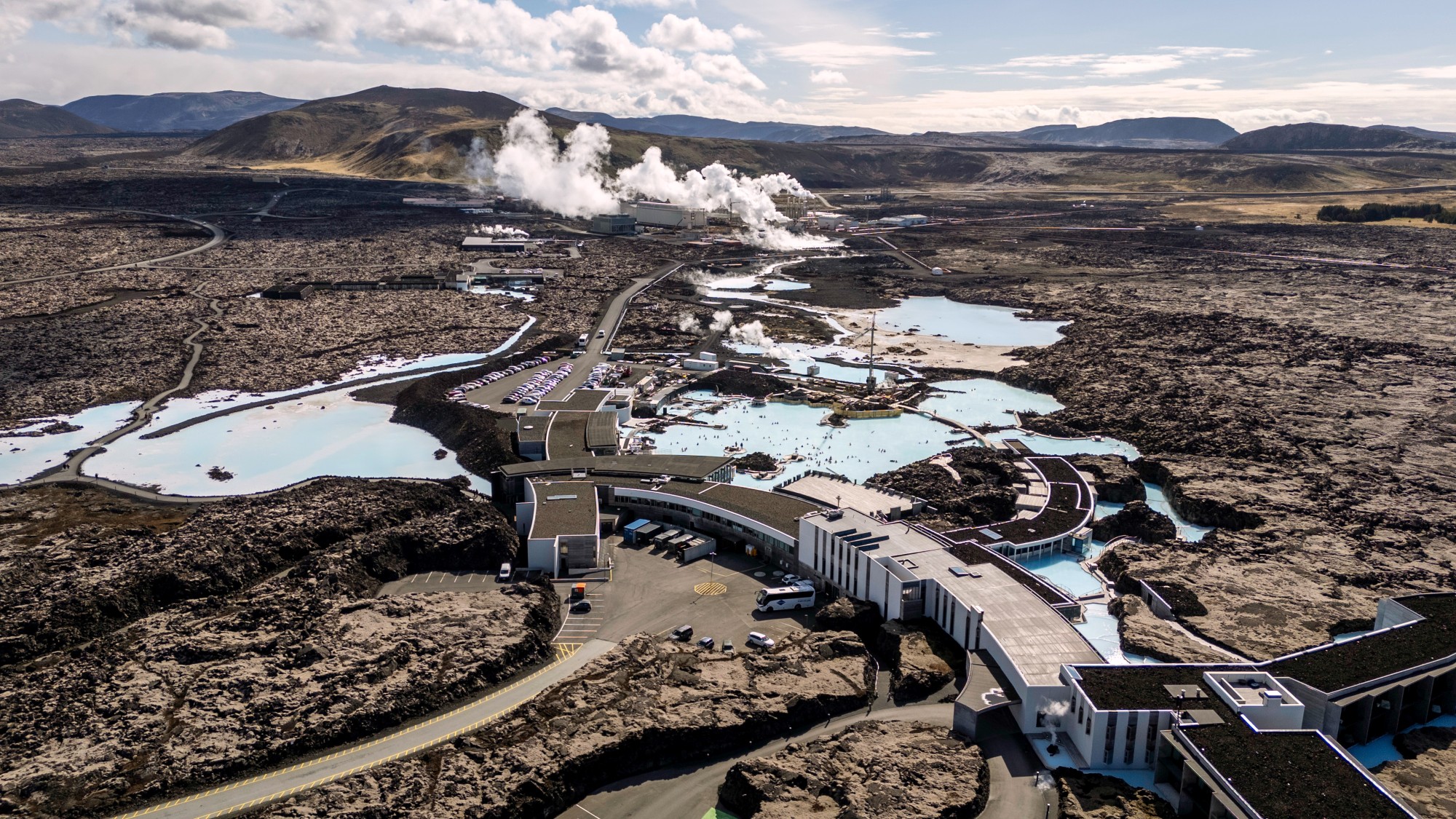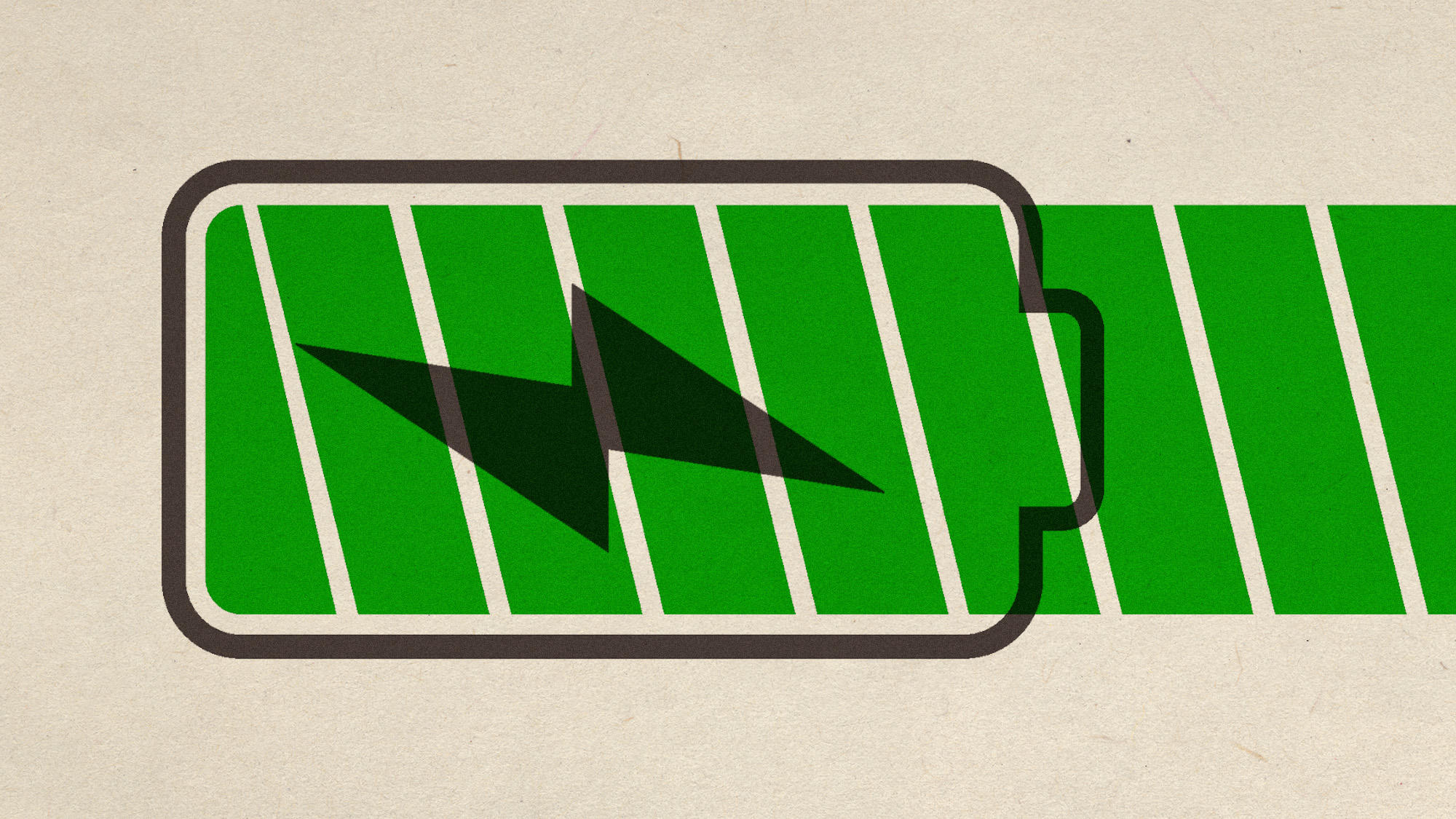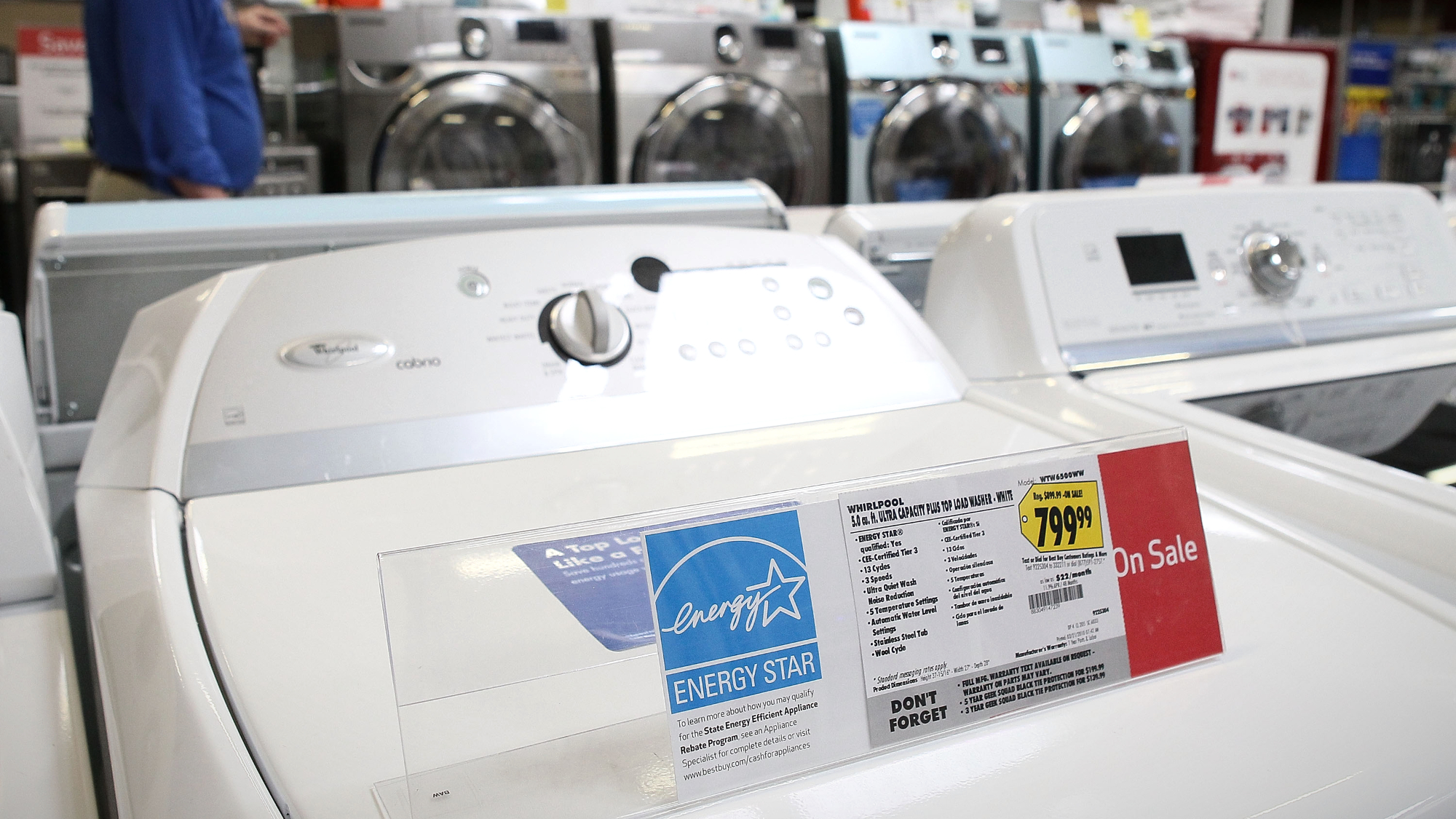Heat pumps: is it worth replacing your gas boiler?
More environmentally-friendly and energy-efficient alternative to heating your home comes at a price

A free daily email with the biggest news stories of the day – and the best features from TheWeek.com
You are now subscribed
Your newsletter sign-up was successful
With gas bills set to sky-rocket this winter, heat pumps are gaining interest from those looking to move towards a more environmentally friendly, energy-efficient and cost-effective way of heating their homes.
For 50 years the gas boiler has been “the mainstay of central heating”, said The Times. “Its days, however, are numbered” as new gas-reliant boilers will be banned from UK homes by 2035. Although the government is considering a number of green alternatives to heat homes, including the use of hydrogen boilers, the most “viable” alternative for the majority of households will be electric-powered heat pumps.
While climate change is a key consideration behind the move away from gas boilers, the worsening cost-of-living crisis driven by soaring oil and gas prices has provided added impetus for many to take the plunge and switch over. They have been encouraged by a new government scheme offering subsidies to cover some of the cost of installing heat pumps, although for many households they will still be “prohibitively expensive” said the Daily Express.
The Week
Escape your echo chamber. Get the facts behind the news, plus analysis from multiple perspectives.

Sign up for The Week's Free Newsletters
From our morning news briefing to a weekly Good News Newsletter, get the best of The Week delivered directly to your inbox.
From our morning news briefing to a weekly Good News Newsletter, get the best of The Week delivered directly to your inbox.
However, with the “potential to save you money on your energy bills, fight climate change, and reduce Europe’s dependency on Russian gas”, said The Verge, “the humble heat pump has finally found its moment in the spotlight.”
What are heat pumps and how do they work?
An electric heat pump works like “a reverse fridge, extracting warmth from the outside air, the ground or a nearby water source before concentrating the heat and transferring it indoors”, The Guardian explained.
Heat pumps are “nothing new”, said The Times, but very few are installed each year – roughly 27,000. The number of heat pumps being installed in UK homes will have to be scaled up considerably, with the government’s climate advisers recommending that “by 2030 there should be 5.5 million heat pumps in British homes”.
Heat pumps work even when outside temperatures are very low, even near freezing. They are also “much more efficient than a gas boiler” as they are able to produce “around three times the energy they use”, said the i news site.
A free daily email with the biggest news stories of the day – and the best features from TheWeek.com
“Crucially, heat pumps are also clean”, The Times added. Gas-reliant boilers produce masses of carbon dioxide: the gas boilers in British homes “produce twice as much CO2 as the nation’s gas-fired power stations”. But if we can ensure the electricity used to power heat pumps comes from “truly green sources” then “water is the only byproduct” of using a heat pump.
How much do heat pumps cost to install?
The cost of installing a heat pump can be significant and depends on the type installed and the size of a property, the BBC said. The installation can also prove to be “difficult and expensive”. For example, you may need to install “bigger radiators or dig into floors”.
Heat pump prices are “usually high, taking into account the installation”, said GreenMatch.co.uk. The typical price range for a complete installation is “between £8,000 and £45,000, to which the running costs have to be considered”. The cost for an air source heat pump ranges from £8,000 to £18,000, while ground source heat pumps can cost up to £40,000. “The running costs of heat pumps depend on your household, its insulation properties and size.”
What grants are available and who is eligible?
Last October, during the run-up to the Cop26 climate change conference in Glasgow, the UK government announced plans to subsidise the introduction of low-carbon heat pumps in order to cut reliance on fossil-fuel heating.
As part of what The Guardian described as a “home heating revolution” in Britain, the government Boiler Upgrade Scheme (BUS) offers grants that “will help property owners overcome the upfront cost of low-carbon heating technologies”, the Department for Business, Energy & Industrial Strategy explained. The BUS scheme to help 90,000 households install home heat pumps is open to domestic and small non-domestic properties in England and Wales and runs until 2025.
Entitlements include:
- £5,000 off the cost and installation of an air source heat pump
- £5,000 off the cost and installation of a biomass boiler
- £6,000 off the cost and installation of a ground source heat pump
Are there any other financial incentives available?
In his Spring Statement earlier this year, then-Chancellor Rishi Sunak also announced that households will now pay 0% VAT on energy-saving equipment such as heat pumps and solar panels, for five years.
The influential Conservative think tank Onward has gone further, calling on the government to offer home buyers a 50% stamp duty rebate if they install heat pumps and other energy-efficiency measures.
According to The Mirror, a similar scheme in Finland has helped the country reach one of the highest rates of heat pump sales in Europe.
With Britons set to face soaring bills as a result of the wholesale cost of gas, “such energy efficiency measures could also help save money in the long run”, said the Daily Express.
What are the advantages of heat pumps?
Heat pumps are “normally three times more efficient than gas boilers but they use electricity to run, and electricity prices are typically more expensive than gas”, the BBC said. However, given the current high price of gas, “heat pumps could still be cheaper”. The government has said it will look at ways to ensure heat pumps are “no more expensive to run than a gas boiler in the long run”.
There are seven main advantages of heat pumps, according to GreenMatch.co.uk. These are:
- Lower running costs
- Less maintenance
- Better safety
- Reduces carbon emissions
- Provides cooling
- Long life-span
- Eligible for RHI scheme
Which?, the consumer rights magazine, said that because heat pumps use electric power, they are not zero carbon unless the electricity comes from renewable sources like solar or wind, “but they are being seen as part of the answer to the energy crisis and the journey to net zero,” said The World Economic Forum.
“It’s a home comfort issue. It’s a climate issue. It’s a security issue,” Alexander Gard-Murray, a climate change researcher and economist at Brown University, told The Washington Post. “Any one of them would be enough to move aggressively on heat pumps, but taken together I think the evidence is insurmountable.”
What are the disadvantages?
Although the government is setting aside £450m for the new subsidies, this will only cover the cost of replacing around 90,000 boilers. Homes also need to be well insulated to stay warm with the use of a heat pump, which not only adds to costs but the “high levels of insulation needed” is not “always possible in older, solid-walled homes common across the UK”, the BBC said.
The Independent reported that “energy experts estimate that nearly a fifth of homes, some 4.8 million, are suitable for a heat pump today while another 30%, or 8.4 million, need minimal changes such as loft and cavity wall insulation, which will also cut bills”.
Installing a heat pump “might not be the best option for your home, and the cost could be prohibitive”, said The Telegraph. “Although the technology is evolving, and is likely to improve significantly and fall in cost over the coming years, heat pumps are currently slower at heating cold homes than traditional boilers.”
Space could also be an issue because you’ll “need a place outside your home where a unit can be fitted to a wall or placed on the ground,” said the Energy Saving Trust. “It must have some space around it to allow a good flow of air.”
Seven main disadvantages of heat pumps are, according to GreenMatch.co.uk:
- High upfront cost
- Difficult to install
- Questionable sustainability
- Requires significant work
- Issues in cold weather
- Not entirely carbon neutral
- Planning permissions required
Kevin McCloud, presenter of TV show Grand Designs, believes spending millions on heat pumps is a “classic pratfall”, The Telegraph reported. In an interview with the paper, McCloud said while heat pumps are “wonderful machines”, and he’s a “big fan”, Britain should be focusing on insulation, ventilation and shutters instead.
-
 What is the endgame in the DHS shutdown?
What is the endgame in the DHS shutdown?Today’s Big Question Democrats want to rein in ICE’s immigration crackdown
-
 ‘Poor time management isn’t just an inconvenience’
‘Poor time management isn’t just an inconvenience’Instant Opinion Opinion, comment and editorials of the day
-
 Bad Bunny’s Super Bowl: A win for unity
Bad Bunny’s Super Bowl: A win for unityFeature The global superstar's halftime show was a celebration for everyone to enjoy
-
 Zero-bills homes: how you could pay nothing for your energy
Zero-bills homes: how you could pay nothing for your energyThe Explainer The scheme, introduced by Octopus Energy, uses ‘bill-busting’ and ‘cutting-edge’ technology to remove energy bills altogether
-
 Pros and cons of geothermal energy
Pros and cons of geothermal energyPros and Cons Renewable source is environmentally friendly but it is location-specific
-
 Builders return to the stone age
Builders return to the stone ageUnder the Radar With brick building becoming ‘increasingly unsustainable’, could a reversion to stone be the future?
-
 Megabatteries are powering up clean energy
Megabatteries are powering up clean energyUnder the radar They can store and release excess energy
-
 Renewables top coal as Trump seeks reversal
Renewables top coal as Trump seeks reversalSpeed Read For the first time, renewable energy sources generated more power than coal, said a new report
-
 EPA is reportedly killing Energy Star program
EPA is reportedly killing Energy Star programspeed read The program for energy-efficient home appliances has saved consumers billions in energy costs since its 1992 launch
-
 Pakistan's solar panel boom
Pakistan's solar panel boomUnder The Radar A 'perfect storm' has created a solar 'revolution' in the south Asian country
-
 Airlines ramp up the hunt for sustainable aviation fuel
Airlines ramp up the hunt for sustainable aviation fuelUnder The Radar Several large airlines have announced sustainability goals for the coming decades